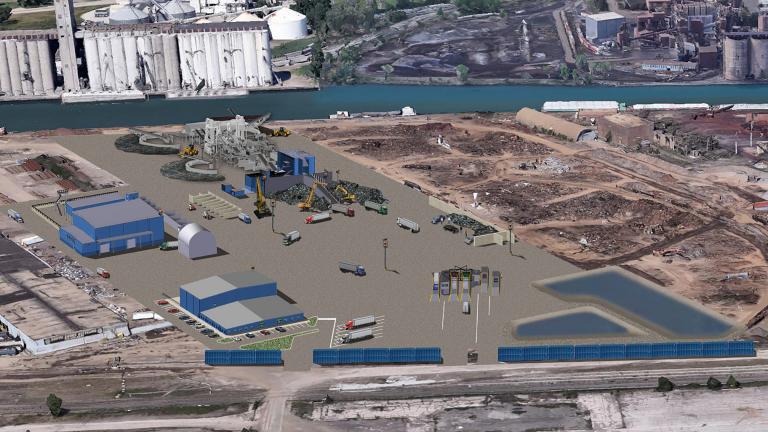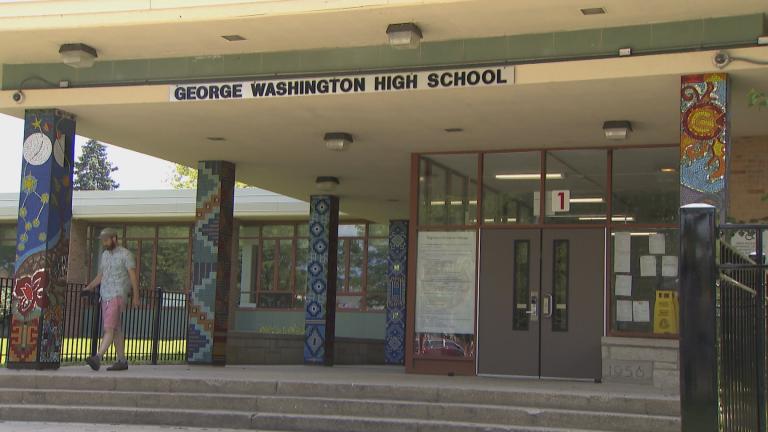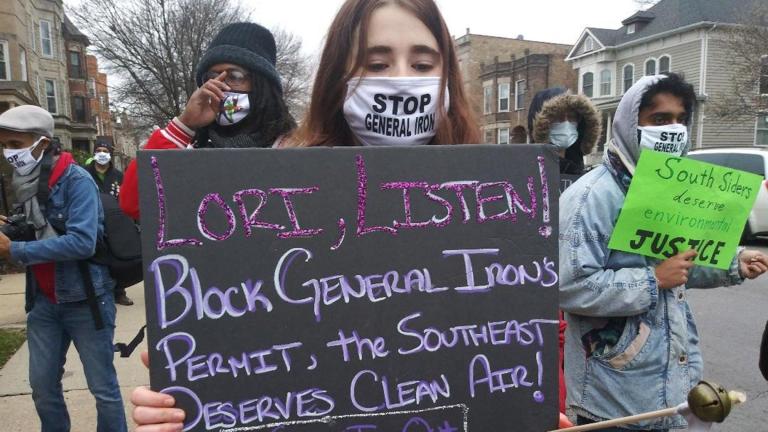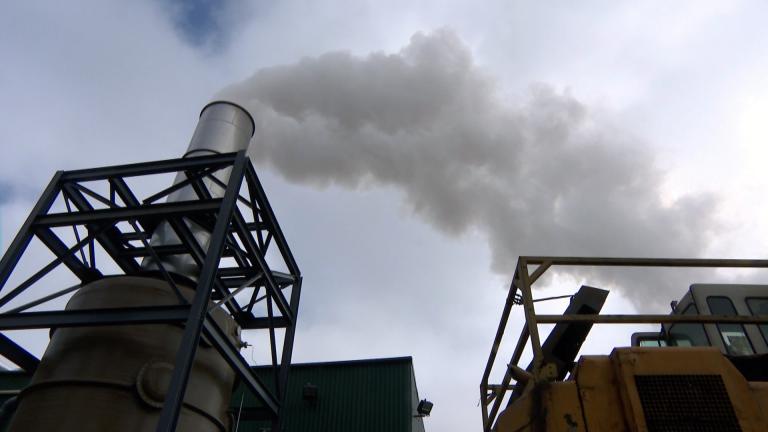A proposal from the parent company of General Iron to operate a metal shredding and recycling operation on Chicago’s Southeast Side would not adversely impact the health of residents on the Southeast Side, city health officials said Tuesday, citing a yet-to-be released study.
Dr. Allison Arwady, commissioner of the Chicago Department of Public Health, will announce no later than Sunday whether they will issue the final permit Reserve Management Group, known as RMG, needs to operate Southside Recycling at 11600 S. Burley Ave., said Megan Cunningham, managing deputy commissioner of the Chicago Department of Public Health.
When that decision is announced, the city will publish a summary of the health impact assessment it conducted of the proposal’s impact on the surrounding neighborhood, Cunningham said during a virtual community meeting that included a broad overview of the report’s findings. The full report will be published no later than Feb. 28.
“The human health risk assessment modeling does not indicate there would be adverse health effects due to Southside Recycling and other RMG businesses on the property,” Cunningham said.
However, residents of South Deering and Hegewisch face risks of chronic disease, including cancer, greater than residents of most other Chicago neighborhoods. In addition, the rate of cancer in those two Southeast Side neighborhoods is among the highest in Chicago, Cunningham said.
Living near industrial facilities can also have a negative impact on the mental health of nearby residents, especially for those who are Black or Latino, Cunningham said.
“We are looking cumulatively at the burdens that the Southeast Side neighborhoods of Hegewisch, East Side and South Deering face today as an area of significant industrial development,” Cunningham said.
A study conducted by the city’s environmental consultant Tetra Tech as part of the assessment determined the air emissions likely to be generated by the metal scrapper would be within levels deemed acceptable by the Environmental Protection Agency, Cunningham said.
That pollution would not make the threat of cancer greater than the benchmarks set by the EPA, according to the Tetra Tech study.
The final permit Southside Recycling needs has been on hold since May, when Mayor Lori Lightfoot delayed any action after EPA Administrator Michael Regan said the proposal raised “significant civil rights concerns” and merited an in-depth study.
The firm sued the city twice in an effort to force officials to issue the permit, but was not successful.
Randall Samborn, a spokesman for Southside Recycling and Reserve Management Group, declined to comment to WTTW News Tuesday evening. Representatives of the firm have repeatedly said the proposed facility would “meet or exceed all applicable environmental and health standards.”
Residents of the Southeast Side and environmental advocates have repeatedly urged the city to block the shredding operation from operating in the 10th Ward, a part of the city they said already experiences a disproportionate burden from industrial operations that cause air and soil pollution, traffic congestion and noise.
Regan’s letter echoed those concerns, saying the area’s already poor quality of life would be reduced by the new metal shredder. The company shut down its Lincoln Park operation — which drew numerous violations and triggered tens of thousands of dollars in fines — at the end of 2020.
“Substantial data indicate the current conditions facing Chicago’s southeast side epitomize the problem of environmental injustice, resulting from more than a half century of prior actions,” Regan wrote. “This neighborhood currently ranks at the highest levels for many pollution indicators.”
More than 250 operations on the Southeast Side have been investigated by the EPA for polluting the air with fine particulate matter that has been linked to a higher risk of cancer as well as respiratory disease. Other environmental issues in the neighborhood include heavy truck traffic and hazardous waste sites that are polluted with lead paint and wastewater, according to Regan’s letter.
“Because of these well-known degraded environmental conditions, the siting of this facility in Chicago’s southeast side has raised significant civil rights concerns,” Regan wrote.
The U.S. Department of Housing and Urban Development is investigating a civil rights complaint prompted by General Iron’s move from Lincoln Park to the Southeast Side.
In August, RMG agreed to pay a $500,000 fine to the federal government as part of an agreement to resolve charges that the firm’s defunct Lincoln Park operation violated the Clean Air Act.
In May 2020, two explosions at the Lincoln Park facility rattled the North Side, and prompted Chicago Department of Health officials to fine General Iron $6,000 for violating state pollution standards. In November 2020, General Iron officials agreed to pay a total of $18,000 in fines after being hit with a dozen citations from city inspectors in connection with the explosions as well as dozens of complaints and citations.
In addition, city officials cited RMG in July for failing to notify the proper authorities that a vacant building collapsed on the site of the proposed facility.
The health risk assessment found that the proposed Southside Recycling facility would have a positive impact on the economy of Chicago’s Southeast Side by creating a total of 100 jobs, Cunningham said. That will require the firm to hire 35 new people, and firm officials have agreed to give nearby residents’ preference for hiring, she added.
The facility will be able to process 500 tons of material per hour of obsolete metal, which will benefit the entire city, Cunningham said. If it is allowed to operate, it will make it unlikely that the area would start transitioning from an area of the city where industrial operations are clustered, Cunningham said.
In addition, the facility will have negative impacts on the area’s traffic congestion by adding 70 truck and care trips during the morning rush hour and an additional 30 during the evening rush hour, Cunningham said.
The facility will also have a negative impact on noise pollution in the area around the facility, and potentially have a negative impact on the area’s water, soil and air, Cunningham said.
In addition, there is the potential of explosions or fire at the facility, Cunningham said.
The permit will be issued based on a number of factors, including the community’s “current burden and vulnerability” as well as the facility’s potential benefits to Southeast Side residents balanced against the “potentially negative impact on environment, health and quality of life that cannot be adequately addressed through mitigations,” according to a statement from the Chicago Department of Public Health.
In addition, the decision on whether to issue the permit will also be influenced by the “actions of the company to-date, including compliance history,” according to the department’s statement.
Contact Heather Cherone: @HeatherCherone | (773) 569-1863 | [email protected]






